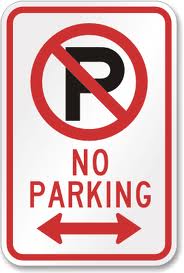The city of Houston has been trying to tackle the problem of insufficient parking in the busy Washington Avenue entertainment corridor.
What to do about Washington Avenue is Houston’s latest public policy discussion of what government’s role should be in growing business, in helping a fledgling business strip turn into a destination district.
The players all seem to want the same thing: Turnover at the restaurant tables, safe revelry in bars and clubs, pedestrians strolling a well-kept avenue and sprinkling their cash at the storefronts. All the while, people should be able to sleep through it two blocks away.
The city’s parking czar is rolling out plans for what he calls a parking benefit district, which would include residential parking permits to protect nearby homes, better lighting and security, and spruced-up sidewalks. It would be paid for by charging for spaces along the curb.
Don Pagel, whose official title is deputy director of Houston’s Department of Administration and Regulatory Affairs, says the avenue’s very success threatens to undermine its future. It is a Yogi Berra philosophy summed up in the Yankee legend’s oft-quoted remark that a New York restaurant “is so crowded nobody goes there anymore.”
Parking is a commodity, Pagel said, just like groceries or furniture, and should be priced accordingly to derive the maximum economic benefit. In practice, this means it should cost more when it is scarce. Charging for parking will not only bring in money that can be reinvested into the neighborhood, Pagel said, but it will ensure that the folks who have money to spend will get the premium spots at the curb. Someone who tries to avoid a $2 parking charge, Pagel suggests, is unlikely to spend $50 on dinner.
“Folks with the most money have the least amount of patience,” Pagel said. They will make one pass along Washington, he speculated, and if they don’t find a space they’ll move on to Montrose or Midtown.
I’m not particularly thrilled about residential parking permits, but everything else sounds pretty good. It’s particularly encouraging to hear officials like Pagel talk about parking as a valuable commodity, one that should be priced accordingly. Among other things, the sidewalks on Washington Avenue are atrocious, so if this parking benefit district can genuinely raise some money, perhaps that can finally be addressed. I have to think that any long-term solution must include better ways to get to Washington Avenue’s recreations without driving and parking – i.e., bikes, mass transit, and remote parking areas with shuttle service. But this sounds like a good start and the right direction, so let’s see how it goes. The Chron’s editorial page has more.


i am against this -what this is is theft by ordinance canadian style- its the mayor allowing the activist in washington corridor to take all the parking revenue from 95% of the people that dont live there and keep the money in there area-problem is kuffner, that money is coming from the heights-your area- dont you think that money should go to fix your area if thats where the money is coming from—- the money is coming from everrywhere except the very people that are trying to capture it-thats not fair-the parking money should stay with the city so that it can be used for everybody not the select few in washington-the mayor should tell these people to go jump in a lake-i am dissapointed in you charles kuffner for signing on to something so out of whack i cant see straight-the council should stop this before it gets started- youll have to explain it to ellen cohen so that she gets it-its a theft program for sure.
joshua ben bullard
Pingback: Here comes that B-Cycle expansion – Off the Kuff
Pingback: The Washington Avenue parking benefit district is now operational – Off the Kuff